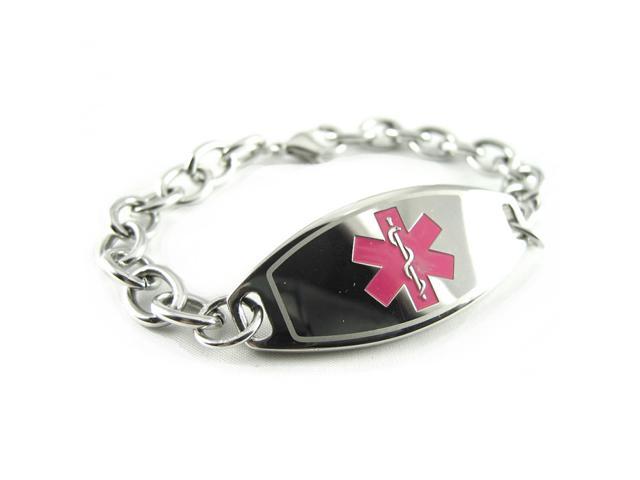Hormonal acne is a common skin condition that affects many individuals, particularly during puberty, menstruation, pregnancy, and menopause. This type of acne is often linked to hormonal fluctuations, leading to an increase in sebum production and clogged pores. While various treatments are available, including topical medications and lifestyle changes, there is growing interest in the role of diet, particularly omega-3 fatty acids, in managing hormonal acne. In this blog post, we will explore the connection between omega-3 and hormonal acne, examining whether these essential fatty acids can indeed help.
Understanding Hormonal Acne
Hormonal acne occurs when the body experiences fluctuations in hormones, particularly androgens like testosterone. These fluctuations can lead to:
- Increased oil production in the skin.
- Clogged hair follicles.
- Inflammation.
The most common areas affected by hormonal acne are the face, chest, and back. The condition can be distressing, leading to not only physical discomfort but also emotional stress and reduced self-esteem. Traditional treatments often include benzoyl peroxide, retinoids, and hormonal therapies, but many people seek natural alternatives to manage their symptoms.
What Are Omega-3 Fatty Acids?
Omega-3 fatty acids are essential fats that our bodies cannot produce on their own, meaning we must obtain them from our diet. The three main types of omega-3 fatty acids are:
- Alpha-linolenic acid (ALA): Found in plant sources such as flaxseeds, chia seeds, and walnuts.
- Eicosapentaenoic acid (EPA): Primarily found in fish and seafood.
- Docosahexaenoic acid (DHA): Also found in fish and seafood, DHA is crucial for brain health.
Omega-3 fatty acids are known for their numerous health benefits, including their anti-inflammatory properties, which may play a role in managing skin conditions like acne.
The Role of Omega-3 Fatty Acids in Inflammation
Inflammation is a key contributor to acne development. When the skin becomes inflamed, it can lead to redness, swelling, and the formation of pimples. Omega-3 fatty acids are known to reduce inflammation in the body, potentially alleviating some of the symptoms associated with hormonal acne.
Research has shown that omega-3s can modulate inflammatory pathways by:
- Reducing the production of pro-inflammatory cytokines.
- Increasing the production of anti-inflammatory compounds.
- Balancing the immune response.
By incorporating omega-3-rich foods into one’s diet, individuals may help their bodies manage inflammation better, which could, in turn, lead to a reduction in acne flare-ups.
Omega-3 Fatty Acids and Hormonal Balance
Hormonal fluctuations are a significant factor in hormonal acne. Some studies suggest that omega-3 fatty acids may help regulate hormone levels in the body. For instance, omega-3s can influence the production of prostaglandins, which are hormone-like substances involved in regulating various bodily functions, including inflammation and immune responses.
Some researchers have proposed that a diet rich in omega-3 fatty acids may help mitigate the effects of hormonal imbalances, particularly during critical periods such as menstruation or pregnancy. By supporting hormonal balance, omega-3s may reduce the frequency and severity of hormonal acne flare-ups.
Research on Omega-3 and Acne
Several studies have examined the potential benefits of omega-3 fatty acids in treating acne. For example:
- A study published in the Journal of Clinical and Aesthetic Dermatology found that individuals with acne had lower levels of omega-3 fatty acids in their diets compared to those without acne. This suggests a possible correlation between omega-3 intake and acne severity.
- Another study published in Dermatology Research and Practice indicated that omega-3 fatty acids may reduce inflammation and improve skin health in individuals with acne.
While these findings are promising, more extensive clinical trials are needed to establish a definitive link between omega-3 fatty acids and hormonal acne. It’s important to approach this area of research with an open mind and recognize that individual responses can vary.

How to Incorporate Omega-3 Fatty Acids into Your Diet
If you’re considering incorporating more omega-3 fatty acids into your diet to help manage hormonal acne, here are some practical tips:
- Eat Fatty Fish: Include fatty fish like salmon, mackerel, sardines, and trout in your meals a couple of times a week. These fish are rich sources of EPA and DHA.
- Add Plant-Based Sources: If you’re vegetarian or vegan, consider adding flaxseeds, chia seeds, walnuts, and hemp seeds to your diet. These foods provide ALA, which the body can partially convert to EPA and DHA.
- Use Omega-3 Oils: Flaxseed oil and chia seed oil are excellent options for drizzling over salads or adding to smoothies. Just be mindful of the storage and usage instructions to maintain their freshness.
- Consider Algal Oil: If you’re looking for a plant-based source of EPA and DHA, algal oil, derived from algae, is an excellent option. It is available in various forms, including oils and capsules.
- Maintain a Balanced Diet: Focus on a well-rounded diet rich in whole foods, including plenty of fruits, vegetables, whole grains, lean proteins, and healthy fats. This balanced approach supports overall health and skin wellness.
Lifestyle Factors and Hormonal Acne
In addition to dietary changes, several lifestyle factors can also impact hormonal acne. These include:
- Stress Management: Chronic stress can lead to hormonal imbalances that exacerbate acne. Practices like yoga, meditation, and regular exercise can help manage stress levels.
- Adequate Sleep: Sleep is crucial for hormonal regulation. Aim for 7-9 hours of quality sleep each night to support your body’s natural rhythms.
- Skincare Routine: A consistent skincare routine that includes gentle cleansing and non-comedogenic products can help keep the skin clear.
- Hydration: Staying well-hydrated is essential for overall skin health. Aim to drink plenty of water throughout the day.
Conclusion
While more research is needed to fully understand the relationship between omega-3 fatty acids and hormonal acne, the existing evidence suggests that incorporating these essential fats into your diet may offer benefits for inflammation and hormonal balance. If you need any additional tips and information about omega-3 and hormonal acne, please take a moment to visit Futuro labs to learn more.
By focusing on a well-rounded diet, managing stress, and maintaining a healthy lifestyle, individuals can take proactive steps toward managing hormonal acne. As always, it’s best to consult with a healthcare professional before making significant changes to your diet or treatment plan, especially if you’re dealing with persistent or severe acne. With the right approach, you may find that omega-3 fatty acids play a positive role in your journey toward healthier skin.




